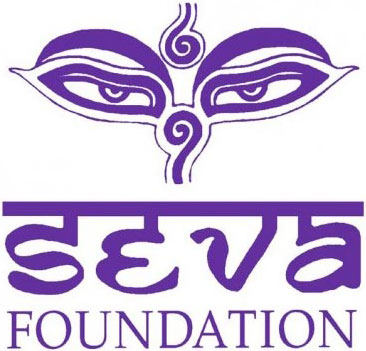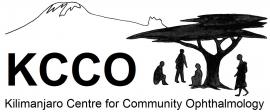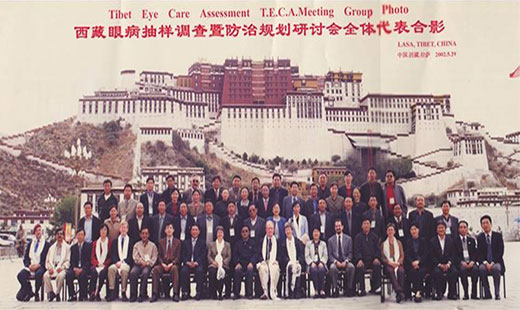Our History

Founded by some of the people who worked on the eradication of smallpox, Seva was established to empower the spirit of service and alleviate human suffering. Read our story below.
1976
Aravind Eye Hospital Opened

1978
1st Grateful Dead Concert for Seva

1978
Seva Foundation is Formed
After working with the World Health Organization (WHO) to end smallpox in India, Drs. Larry Brilliant (currently President, Skoll Global Threats Fund) and his wife Girija Brilliant, a public health specialist, publish Death of a Killer Disease. Their article urges readers to support international health programs for people living in poverty.
People are inspired and soon $20,000 in donations arrive – the first $5,000 coming from not-yet-famous computer inventor, Steve Jobs. With this, Seva Foundation is born and Dr. V participates in the first board meeting as a founding member. Seva’s work begins in India with Dr. V and the Aravind Eye Hospital.
1981
1st Nationwide Blindness Study in Nepal
Seva conducts the world’s first nationwide, population-based study of the causes and distribution of blindness in Nepal. The study shows that two-thirds of blindness is due to cataract, not trachoma, contrary to contemporary belief.
Leo Boon “Cycles for Sight” from Vancouver to San Francisco to Miami (4500 miles) and asks people along the way to donate a penny a mile.
1982
Seva Canada Established
Alan Morinis and Bev Spring establish Seva Canada and secure funding from the Canadian International Development Agency (CIDA now Global Affairs Canada).
1984
Seva Begins Working in Lumbini Zone, Nepal
1985
Seva Recognized in Nepal
1987
1st Intraocular Lens Surgical Eye Camp in Nepal
Dr. Marty Spencer, Seva board member and ophthalmologist, conducts the first intraocular lens surgical eye camp in Nepal; revolutionizing eye care in low-income countries.
1992
Aurolab formed in India
Seva and CIDA help Aravind Eye Hospital in India form Aurolab, a non-profit trust providing modern eye care technology at affordable costs.
Aurolab revolutionizes eye care in low-and middle-income countries by bringing the cost of intraocular lenses down from $300 per lens to under $5.
1993
Lumbini Eye Hospital Established
1994
Manual Sutureless Cataract Surgery Taught
1995
Seva Begins Working In Tibet
Seva launches its programming in the Tibetan Areas of China.
Meanwhile, in Nepal, Seva initiates the Ophthalmic Assistant training program as part of the Lumbini Eye Care Program.
1996
A Plan To Expand is Endorsed
Seva endorses a plan to take their high-volume, high-quality, sustainable eye care approach into new regions of the world.
Meanwhile, Aravind Eye Hospital in India inaugurates the Lions Aravind Institute of Community Ophthalmology (LAICO), Asia’s first international training facility for blindness prevention workers from India and around the globe.
1998
Seva Leads Tibetan Eye Care Survey
Seva leads the Tibet eye care survey with the Tibet Health Bureau. Seva’s local trainees conduct half of all eye surgeries in the Tibetan Areas of China.
1999
Seva Joins VISION 2020
Seva joins VISION 2020, a global initiative for the elimination of avoidable blindness with the World Health Organization (WHO) and the International Agency for the Prevention of Blindness (IAPB).
Seva begins working in Cambodia with the Battambang Ophthalmic Care Centre (Seva Canada begins funding in 2009).
In Nepal, Seva and the Lumbini Eye Care Program develop Community Eye Centres in isolated, underserved areas outside of the Lumbini Zone, Nepal.
2000
Seva Canada’s Research Discovers ⅔ of the World’s Blind are Women and Girls
Seva Canada conducts research in Africa with the founders of KCCO that identifies the gender inequity in the treatment of blindness. Seva funds the publication of that research which results in a worldwide shift in the way data is gathered and used by the eye care community.
Seva and its partners develop a Gender and Eye Care Working Group to reduce gender inequity.

2001
Seva Canada Helps Establish KCCO, Tanzania
Seva Canada helps establish the Kilimanjaro Centre for Community Ophthalmology (KCCO) and begins work in Tanzania.

2002
Seva Sponsors 1st Eye Care Planning Workshop in Lhasa, Tibet
This workshop results in the creation of a 10-year cataract prevention plan.
2009
Seva Begins Working in Egypt, Guatemala, Malawi & Madagascar
2011
Seva Conducts RAAB in Madagascar
Seva Canada co-funds Madagascar’s 1st National Pediatric Eye Care Planning Meeting resulting in a series of outreach programs and training initiatives. It also funds a Rapid Assessment of Avoidable Blindness (RAAB) survey in Atsinanana, the capital, to estimate the prevalence of blindness in people over 50 years of age.
In Tanzania, Seva begins working with established microfinance groups to increase the utilization of eye care services by women and children.
Seva also begins community outreach program in the San Marcos region in Guatemala.
2012
Seva Canada is introduced in the B.C. Legislature
MLA Eric Foster introduces Seva Canada into the British Columbia Legislature.
Seva Canada begins funding Burundi, Zambia and Rwanda.
Seva also begins working with established microfinance groups in Nepal and Zambia to increase the utilization of eye care services by women and children.
2013
All Districts in Nepal Have Primary Eye Care
Seva Canada inaugurates a Community Eye Centre (CEC) in Bajura, the last district in all of Nepal without access to primary eye care. This is a major milestone in Seva Canada’s objective of providing primary eye care to all regions of the country.
Seva Cambodia sees a dramatic increase in the utilization of eye care, especially cataract surgeries, in all of its districts following the hiring and training of four field workers.
Seva supports Burundi’s 1st two pediatric surgical treatment activities, providing hundreds of children with essential eye care. Seva Canada also builds its 1st CEC in Burundi.
2014
Seva Cambodia Expands into Pursat and Kampot
The Seva Cambodia program increases substantially by serving two new provinces: Pursat in the western part of the country and Kampot in the southern region.
In Nepal, Seva establishes a new secondary eye hospital in the Dhankuta District.
Seva and the Bharatpur Eye Hospital create a three-year Ophthalmic Assistant program that trains 40 students a year.
2015
Seva Canada Receives the Champalimaud Vision Award
Seva Canada alongside Seva Foundation and the Kilimanjaro Centre for Community Ophthalmology were awarded the prestigious Champalimaud Vision Award. The award recognized the groups’ innovative approach to programs in Africa and came with a 1 million Euro prize.
Leonard Cohen, award-winning Canadian entertainer and the Right Honourable Adrienne Clarkson, former Governor General of Canada, become honorary patrons of Seva Canada.
The 1st Motown Meltdown concert benefiting Seva Canada takes place at the Commodore Ballroom in Vancouver.
Seva Canada’s reach continues to grow as it begins training overseas partners in fundraising and marketing.
2017
Gender Inequity Improves for Women
The Lancet releases the latest data on the prevalence and causes of vision loss and blindness worldwide. Globally, due to strategies like the ones that Seva Canada and its partners have implemented, the number of women who are blind decreased by 10%. Unfortunately that statistical improvement did not extend to girls who are still half as likely as boys to access eye care services.
2019
Seva Canada Sponsors Women Deliver in Vancouver
Seva Canada takes part in Women Deliver, the world’s largest conference on gender equality and the health, rights, and wellbeing of girls and women, to share its research and strategies to improve the lives of millions in low-income countries.
Seva Canada’s Executive Director is featured on an expert panel and 2 videos – Anjana’s Story and Cause and Effect – are highlighted at the Film Festival.
2021
Seva Canada Updates its Mission Statement
Seva Canada updates its mission statement from “Seva Canada’s mission is to restore sight and prevent blindness in developing countries” to “Seva Canada’s mission is to restore sight and prevent blindness in low- and middle-income countries. The change recognizes that ‘developing’ and ‘developed’ are no longer appropriate or applicable adjectives for the people and places Seva serves.
2022
Seva donors help 5 million people see again
To date Seva donors have given the power of sight to over 5 million people through life-changing surgeries and provided eye care services to millions more.
2023
Seva Cambodia staff are honoured with Royal Orders
The Seva Cambodia team receive Royal Orders conferred by the King and Prime Minister of Cambodia. The prestigious honour recognizes their outstanding accomplishments and commitment to improve lives through eye care.
Seva Canada and Seva Nepal collaborate to provide more community ophthalmology training in Nepal administered through Bharatpur Eye Hospital. The 1st course designed for outreach managers, teaches a preventative approach to eye disease.
2024
Dr. Martin Spencer Receives the ASCRS Foundation Chang-Crandall Humanitarian Award
Dr. Spencer, Canadian ophthalmologist and Seva Board Member is honoured for exemplary dedication to humanitarian efforts with a focus on addressing cataract blindness and disability globally. He is awarded $100,000 which he splits between Seva Canada and Seva Foundation in the US.